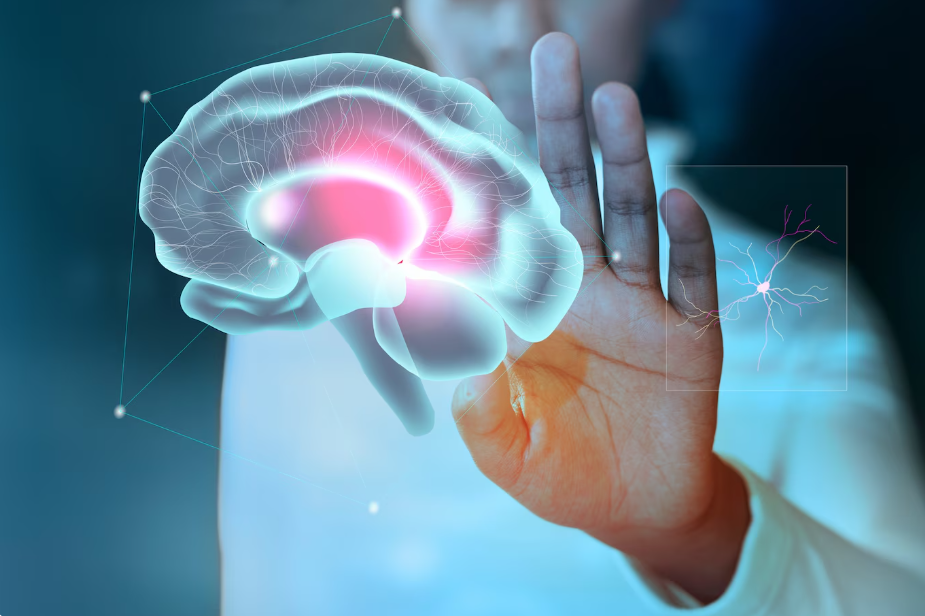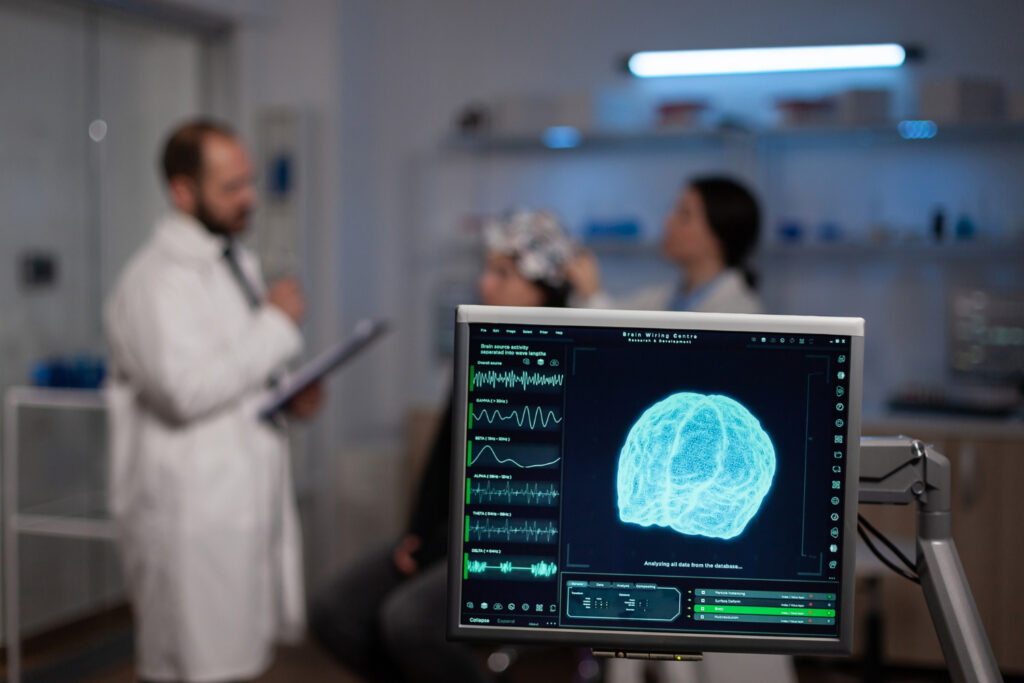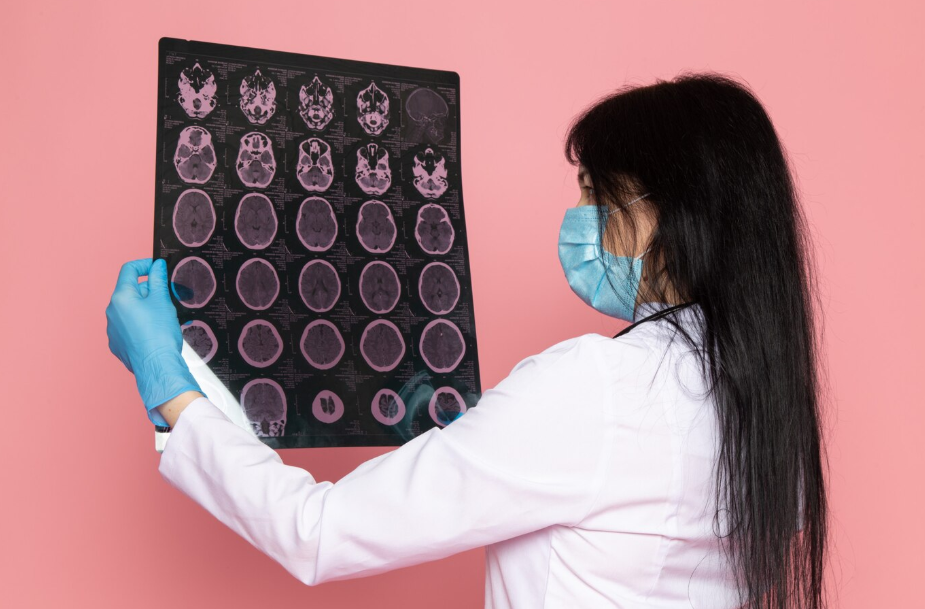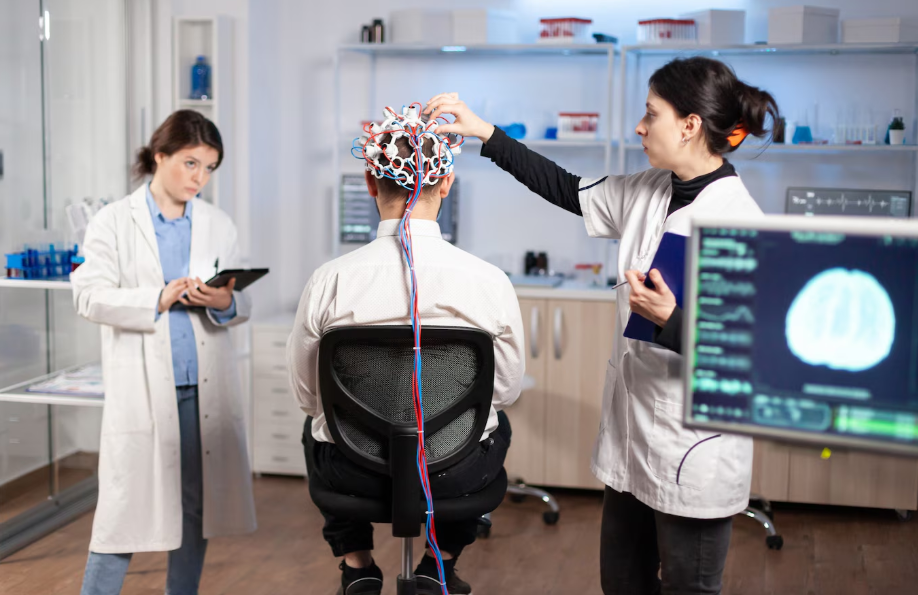
Key Points:
- Neurological diseases affect the brain and nerves, causing memory loss, movement issues, and behavior or speech changes.
- Doctorhub360.com offers expert help, treatments, and emotional support for managing complex neurological diseases effectively and confidently.
- Early diagnosis, personalized care, and support systems can greatly improve life quality for people with neurological conditions.
Introduction
Neurological diseases can affect anyone, at any age, and change a person’s life in ways that are often difficult to predict. These diseases impact the nervous system, which includes the brain, spinal cord, and nerves. When something goes wrong with this system, it can lead to problems with thinking, moving, and controlling bodily functions.
Whether it’s a family member or a friend, seeing someone struggle with neurological symptoms can be overwhelming. Understanding the signs of neurological diseases and finding the proper support is crucial. Doctorhub360.com Neurological Diseases offers helpful resources for people affected by these conditions, offering expert advice, treatment options, and emotional support.
What Are Neurological Diseases?
Neurological diseases are disorders that affect the nervous system, controlling everything from movement to thoughts. Genetics, injuries, infections, or lifestyle choices can cause these conditions. Some diseases are temporary and treatable, while others are chronic or progressive.
The nervous system is complex, and when something goes wrong, it can profoundly affect a person’s life. However, treatments and support systems are available to help manage these conditions and give people a better quality of life, even in the face of a diagnosis.
Also Read: Loguytren Problems: How To Spot And Manage Early Signs
Common Neurological Diseases and Their Symptoms

While neurological diseases vary greatly, they all impact daily life. Below are a few common diseases and signs to watch for:
- Alzheimer’s Disease
Alzheimer’s primarily affects older adults. It causes memory loss, confusion, and changes in behavior, such as mood swings. Early signs include forgetting names or appointments. As the disease progresses, people become disoriented and struggle with basic tasks like dressing themselves or managing their finances.
- Parkinson’s Disease
Parkinson’s affects movement. People experience tremors, muscle stiffness, slow movements, and difficulty balancing. Over time, it can affect a person’s ability to walk, eat, or speak clearly. The symptoms can be subtle initially, but as they progress, they can significantly change a person’s daily life.
- Multiple Sclerosis (MS)
MS is an autoimmune disease that attacks the protective covering of nerve fibers in the central nervous system. It disrupts communication between the brain and the body. Symptoms include fatigue, muscle weakness, difficulty walking, and numbness or tingling in the limbs. MS symptoms can be unpredictable and vary significantly from person to person.
- Epilepsy
Epilepsy causes recurring seizures due to abnormal electrical activity in the brain. Seizures can vary from mild (blank staring) to severe (shaking and loss of consciousness). Seizures can disrupt everyday life, and finding the proper treatment can be critical to controlling them and improving quality of life.
- Stroke
A stroke occurs when blood vessels in the brain are blocked or rupture, causing brain damage. It can result in paralysis, memory problems, difficulty speaking, or vision problems. Immediate medical treatment is essential to minimize brain damage, but recovery often involves physical therapy and rehabilitation.
- Migraines
Migraines are intense headaches often accompanied by nausea, vomiting, and sensitivity to light or sound. During an attack, people with migraines may struggle to perform everyday tasks, and chronic migraines can significantly impact a person’s quality of life.
Also Read: Tech News FeedWorldTech: Breaking the Latest in Innovation
Key Signs to Look Out For

Recognizing the early signs of neurological diseases is crucial for getting help early. Here are key signs to watch for:
- Memory Loss: Forgetting names, dates, or appointments may indicate a neurological problem if it happens often or interferes with daily life.
- Mood Swings or Personality Changes: Unusual irritability, anxiety, or depression could be a sign of a neurological issue.
- Difficulty Moving or Walking: Trouble walking, frequent falls, or stiffness may suggest Parkinson’s or MS.
- Problems with Speech: Difficulty forming words, slurred speech, or difficulty understanding others could indicate a neurological condition like a stroke or Alzheimer’s.
- Seizures: Shaking, jerking movements, or loss of consciousness signal a seizure, often linked to epilepsy.
- Vision Problems: Blurred vision, double vision, or vision loss may occur with MS or a stroke.
- Muscle Weakness or Paralysis: Sudden weakness or loss of movement could indicate a neurological disorder.
If you or someone you know experiences these symptoms, it’s essential to consult a healthcare professional for a proper diagnosis.
How Doctorhub360.com Can Help
Doctorhub360.com Neurological Diseases provides resources for people living with neurological conditions. From expert consultations to emotional support, Doctorhub360.com offers services to improve the quality of life for those affected by neurological diseases.
- Access to Expert Neurologists
Doctorhub360.com connects patients with specialized neurologists who can diagnose and treat various neurological diseases. A proper diagnosis is the first step in managing a disease, and Doctorhub360.com helps patients connect with doctors to create personalized treatment plans.
- Treatment Options
Treatment varies depending on the condition, but standard options include:
- Medications: Drugs can help manage symptoms or slow disease progression. Alzheimer’s medications help improve memory, while Parkinson’s drugs ease tremors and stiffness.
- Therapies: Physical, occupational, and speech therapies help patients regain or maintain abilities, improving mobility, speech, and daily functioning.
- Surgical Options: In some cases, surgery may be necessary. Deep brain stimulation, for instance, can help manage Parkinson’s symptoms when other treatments are ineffective.
- Emotional and Social Support
Living with a neurological disease can be isolating for both patients and their families. Doctorhub360.com offers support groups where individuals can connect with others facing similar challenges. These groups provide emotional relief, share coping strategies, and promote a sense of community.
- Educational Resources
The site also offers educational materials covering everything from symptoms to daily life management with a neurological disease. These resources empower patients and families to manage their condition and make informed care decisions.
Also Read: Make1m.com Millionaire: How Ordinary People Get Rich
Coping Strategies for Neurological Diseases

Dealing with a neurological disease requires more than just medical treatment; it also involves learning how to cope with the emotional and physical challenges that arise. Here are strategies to manage the condition:
- Stay Active: Regular exercise can improve mood, strength, and balance. Always check with a doctor before starting any exercise program, especially if dealing with a neurological condition.
- Eat a Healthy Diet: A nutritious diet benefits overall health and may help manage symptoms. For example, some research shows that a diet rich in antioxidants can help reduce inflammation in the body, which may ease MS or Parkinson’s symptoms.
- Take Breaks: Managing a neurological disease can be exhausting. Rest is essential to avoid burnout and manage stress.
- Seek Support: A strong support system, including family, friends, or counselors, can make a big difference in coping with the disease.
- Stay Informed: The more you know about your disease, the better you can manage it. Educate yourself on treatment options and ways to improve your overall well-being.
Conclusion
Neurological diseases present unique challenges, but with the proper support, treatments, and coping strategies, individuals can live fulfilling lives. Doctorhub360.com Neurological Diseases offers a wealth of resources to help those affected by these conditions, providing expert advice, treatment options, and a supportive community.
If you or someone you love is struggling with a neurological disease, don’t hesitate to explore the resources available at Doctorhub360.com Neurological Diseases. Early intervention and the proper support can make all the difference in managing the disease and maintaining a high quality of life.





